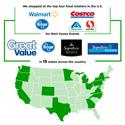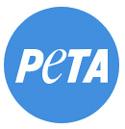Companies
Israeli Company Uses Zero-Waste Process To Make Plant-Based Yogurt
.jpg&width=125&height=75) Israel’s Yofix Probiotics Ltd. has launched a dairy-free, soy-free yogurt alternative line using a clean-label formula involving a few natural ingredients. The yogurt is traditionally fermented and contains live probiotic cultures, plus the prebiotic fibers that feed them. The products, available in three fruit flavors, use no cow milk and, unlike almond or cashew, do not require a great amount of water. The production process is carefully designed to ensure zero waste: all raw materials used in production remain in the final product. The company plans to launch globally, and will also debut plant-based dairy substitutes for milk, yogurt drinks, cream cheese, coffee creamers, and ice cream. [Image Credit: © Yofix Probiotics Ltd.]
Israel’s Yofix Probiotics Ltd. has launched a dairy-free, soy-free yogurt alternative line using a clean-label formula involving a few natural ingredients. The yogurt is traditionally fermented and contains live probiotic cultures, plus the prebiotic fibers that feed them. The products, available in three fruit flavors, use no cow milk and, unlike almond or cashew, do not require a great amount of water. The production process is carefully designed to ensure zero waste: all raw materials used in production remain in the final product. The company plans to launch globally, and will also debut plant-based dairy substitutes for milk, yogurt drinks, cream cheese, coffee creamers, and ice cream. [Image Credit: © Yofix Probiotics Ltd.]
Dangerous Chemicals Found In Foods Produced, Sold By Grocery Chains
 Environmental organization network Friends of the Earth said that its testing found store and name-brand foods produced and sold by the top four U.S. food retailers contain residues of toxic pesticides linked to a range of serious health and environmental problems. The foods were purchased in 15 cities across the country by Friends of the Earth and a number of allies, including Environment Texas. Oat cereals, apples, applesauce, spinach and pinto beans from Kroger, Walmart, Costco, and Albertsons stores contained detectable amounts of glyphosate – key ingredient of the herbicide Roundup – organophosphates and neonicotinoids. The average level of glyphosate found in cereal samples (360 parts per billion) was more than twice the level set by scientists at Environmental Working Group for lifetime cancer risk for children. The average level of glyphosate found in pinto beans (509 ppb) was more than 4.5 times the benchmark.[Image Credit: © Friends of the Earth]
Environmental organization network Friends of the Earth said that its testing found store and name-brand foods produced and sold by the top four U.S. food retailers contain residues of toxic pesticides linked to a range of serious health and environmental problems. The foods were purchased in 15 cities across the country by Friends of the Earth and a number of allies, including Environment Texas. Oat cereals, apples, applesauce, spinach and pinto beans from Kroger, Walmart, Costco, and Albertsons stores contained detectable amounts of glyphosate – key ingredient of the herbicide Roundup – organophosphates and neonicotinoids. The average level of glyphosate found in cereal samples (360 parts per billion) was more than twice the level set by scientists at Environmental Working Group for lifetime cancer risk for children. The average level of glyphosate found in pinto beans (509 ppb) was more than 4.5 times the benchmark.[Image Credit: © Friends of the Earth]
Other
Dairy Co-op Demands That FDA Enforce Rules Regarding “Milk” Labeling

Wisconsin’s Edge Dairy Farmer Cooperative has demanded that the FDA “no longer turn a blind eye to misleading labeling” of plant-based beverages as “milk.” In comments submitted to the agency, Edge called on the FDA to "take immediate action" to enforce existing regulations that define dairy foods as originating from cow's milk. The enforcement is “long overdue and increasingly important,” the co-op said. The FDA has asked for public input to help determine customers' understanding of the labeling and differences between dairy products and plant-based non-dairy products and the effects on purchasing decisions. The FDA says the input could affect any industry guidance it might issue.[Image Credit: © Edge]
Regulation
State Bills To Bar Non-Meat Products From Deceptive Labeling Gather Steam
.jpg&width=125&height=94) The Pew Charitable Trusts reports that several states are considering legislation similar to a recent Missouri law that bars non-meat products, such as those made from tofu or vegetable sources, from being labeled as if they are made from beef. State legislators in Virginia, Nebraska, Tennessee, and Wyoming have introduced bills to stop what they say is deceptive labeling of non-meat products. The Nebraska bill aims to prevent companies from labeling plant-based, insect-based or lab-grown products as "meat." The Wyoming bill would outlaw "misrepresenting a product as meat that is not derived from harvested production livestock or poultry." Under the Virginia bill, a product would be deemed "misbranded" if it "purports to be" meat while containing no meat, unless it contains the word "imitation" on the label. Beef producers generally back the bills, while vegetarians and producers of plant-based food oppose it.[Image Credit: © Free-Photos from Pixabay]
The Pew Charitable Trusts reports that several states are considering legislation similar to a recent Missouri law that bars non-meat products, such as those made from tofu or vegetable sources, from being labeled as if they are made from beef. State legislators in Virginia, Nebraska, Tennessee, and Wyoming have introduced bills to stop what they say is deceptive labeling of non-meat products. The Nebraska bill aims to prevent companies from labeling plant-based, insect-based or lab-grown products as "meat." The Wyoming bill would outlaw "misrepresenting a product as meat that is not derived from harvested production livestock or poultry." Under the Virginia bill, a product would be deemed "misbranded" if it "purports to be" meat while containing no meat, unless it contains the word "imitation" on the label. Beef producers generally back the bills, while vegetarians and producers of plant-based food oppose it.[Image Credit: © Free-Photos from Pixabay]
PETA Billboard In Calif. “Debunks Myth” Of Cage-Free Eggs
 People for the Ethical Treatment of Animals (PETA) has erected a billboard in San Diego, Calif., that it claims “debunks the myth of cage-free eggs.” The billboard followed the release of PETA video footage showing a packed chicken shed at Hilliker's Ranch Fresh Eggs, Inc., in Lakeside, Calif. The company had been publicized as a model of the future of cage-free egg farming in the state and touted by its owner as “Chicken Disneyland.” “’Cage-free' means absolutely nothing to the hens stuffed on top of each other in filthy warehouses and made to overproduce eggs until their bodies give out and they're killed,” said PETA Director Danielle Katz. According to PETA, constant exposure to noise and severe crowding in the sheds can lead to distress, excessive adrenal hormone production, and suppression of the immune system. The billboard will remain up for four weeks.[Image Credit: © People for the Ethical Treatment of Animals]
People for the Ethical Treatment of Animals (PETA) has erected a billboard in San Diego, Calif., that it claims “debunks the myth of cage-free eggs.” The billboard followed the release of PETA video footage showing a packed chicken shed at Hilliker's Ranch Fresh Eggs, Inc., in Lakeside, Calif. The company had been publicized as a model of the future of cage-free egg farming in the state and touted by its owner as “Chicken Disneyland.” “’Cage-free' means absolutely nothing to the hens stuffed on top of each other in filthy warehouses and made to overproduce eggs until their bodies give out and they're killed,” said PETA Director Danielle Katz. According to PETA, constant exposure to noise and severe crowding in the sheds can lead to distress, excessive adrenal hormone production, and suppression of the immune system. The billboard will remain up for four weeks.[Image Credit: © People for the Ethical Treatment of Animals]
USDA Issues Final GMO Food Labeling Rule
 It took nearly three years, but the USDA in December issued the final rule implementing the National Bioengineered Food Disclosure Standard (NBFDS) signed into law by President Obama in 2016. The NBFDS pre-empted state and local genetic engineering labeling requirements. The rule takes effect on February 19; implementation will be phased in over the next three years. The NBFDS requires food manufacturers, importers of food labeled for retail sale in the U.S., and some U.S. retailers to disclose foods and ingredients produced from foods that are or may be bioengineered. Disclosure can be through text, a symbol, electronic or digital link, or text message. For example, the text disclosure can say “bioengineered food” or “contains a bioengineered food ingredient” for a multi-ingredient food. [Image Credit: © BryanCave.com]
It took nearly three years, but the USDA in December issued the final rule implementing the National Bioengineered Food Disclosure Standard (NBFDS) signed into law by President Obama in 2016. The NBFDS pre-empted state and local genetic engineering labeling requirements. The rule takes effect on February 19; implementation will be phased in over the next three years. The NBFDS requires food manufacturers, importers of food labeled for retail sale in the U.S., and some U.S. retailers to disclose foods and ingredients produced from foods that are or may be bioengineered. Disclosure can be through text, a symbol, electronic or digital link, or text message. For example, the text disclosure can say “bioengineered food” or “contains a bioengineered food ingredient” for a multi-ingredient food. [Image Credit: © BryanCave.com]
Research & Insights
Professor’s Research Helps Candy Firm Mars Achieve Its “No Artificial Dyes” Goal
 Candy company Mars Inc. has patented an Ohio State professor’s method of extracting the natural pigments – anthocyanins – that give red, purple, and blue fruits and vegetables their colors. Three years ago, Mars announced a "five-year effort" to remove all synthetic dyes from its products. Before research by Monica Giusti's lab, there was no method of anthocyanin extraction that produced the specific blue pigment of blueberries. Though anthocyanins are difficult to work with, her research helped the company reach its natural dye goal. Giusti's work is allowing companies such as Mars to incorporate real nutritional value into foods that are typically perceived as unhealthy. "The real beauty is that the pigments that we extract from nature tend to be those phytochemicals that make plants good for us," Giusti said.[Image Credit: © The Lantern: Ohio State University (Columbus)]
Candy company Mars Inc. has patented an Ohio State professor’s method of extracting the natural pigments – anthocyanins – that give red, purple, and blue fruits and vegetables their colors. Three years ago, Mars announced a "five-year effort" to remove all synthetic dyes from its products. Before research by Monica Giusti's lab, there was no method of anthocyanin extraction that produced the specific blue pigment of blueberries. Though anthocyanins are difficult to work with, her research helped the company reach its natural dye goal. Giusti's work is allowing companies such as Mars to incorporate real nutritional value into foods that are typically perceived as unhealthy. "The real beauty is that the pigments that we extract from nature tend to be those phytochemicals that make plants good for us," Giusti said.[Image Credit: © The Lantern: Ohio State University (Columbus)]
Market For Citrus Essential Oils Expands Rapidly
 An analysis by Fact.MR finds that citrus essential oil sales increased by 3,000 tons between 2017 and 2018. The oils are used in industrial and other applications, including aromatherapy, cosmetics, health care, and food and beverages. Citrus essential oils manufactured using grapefruits are expected to witness relatively faster momentum, as chemical constituents of grapefruit are sought by various industries. Grapefruit-derived citrus essential oil sales are expected to grow twice as fast as their counterparts in 2019. Purported health benefits of grapefruit essential oils include weight loss, improved immunity, and alleviation of stress. With the oils approved as safe for consumption by regulatory authorities, food and beverage companies have continued to incorporate them as a “clean label” ingredient into multiple products. Their antimicrobial and antifungal properties have opened up new avenues for citrus essential oils in the packaging industry, and as a natural preservative. [Image Credit: © silviarita]
An analysis by Fact.MR finds that citrus essential oil sales increased by 3,000 tons between 2017 and 2018. The oils are used in industrial and other applications, including aromatherapy, cosmetics, health care, and food and beverages. Citrus essential oils manufactured using grapefruits are expected to witness relatively faster momentum, as chemical constituents of grapefruit are sought by various industries. Grapefruit-derived citrus essential oil sales are expected to grow twice as fast as their counterparts in 2019. Purported health benefits of grapefruit essential oils include weight loss, improved immunity, and alleviation of stress. With the oils approved as safe for consumption by regulatory authorities, food and beverage companies have continued to incorporate them as a “clean label” ingredient into multiple products. Their antimicrobial and antifungal properties have opened up new avenues for citrus essential oils in the packaging industry, and as a natural preservative. [Image Credit: © silviarita]
Copyright 2026 Business360, Inc.

